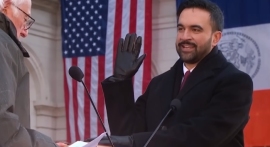
The Bible Society has released a comprehensive study exploring how culture, religion, politics, and economics influence Scripture engagement worldwide.
Developed with the United Bible Societies and grounded in Gallup’s analytics, the Patmos Typology Report analyzes 85 countries and territories and organizes them into seven missiological “clusters” that spotlight current opportunities and barriers for Bible work.
Building on insights from April’s companion Patmos World Bible Attitudes Survey — the largest of its kind, with input from more than 91,000 respondents — the new report extends the evidence base for strategic ministry decisions.
That earlier study found strong theism globally, with five of seven clusters indicating that religion remains significant in everyday life.
Cluster 1 profiles contexts where Christians form a small yet durable minority within predominantly Muslim societies facing economic strain and limited infrastructure — among them Chad, Mali, Pakistan, Afghanistan, and Sierra Leone.
In these settings, an average of just 3% own a Bible, 61% view Christianity as a Western faith, and 94% say faith matters daily. Accordingly, the report urges oral and audio Scripture access, next-generation initiatives, and trust-building partnerships at the local level.
Cluster 2 describes places where Christianity remains the majority religion, yet its societal influence and trust — especially among younger cohorts — are slipping, and secularization is rising.
This group primarily spans Central and Eastern Europe (e.g., Albania, Hungary, Russia) but also includes Portugal, Greece, and Malta.
Only 59% perceive faith as meaningful in daily life — lower than the 73% global baseline — while 50% own a Bible but just 9% read weekly and 12% attend weekly; still, 57% express interest in deeper exploration.
Cluster 3 highlights more economically developed, majority-Muslim settings (roughly 90%) where Christian minorities persist under social and political pressure — including Saudi Arabia, Iraq, Palestine, Lebanon, Egypt, and Israel.
Here, about half consider Christianity Western; 85% say religion matters day to day, yet only 2% own a Bible; among Christians, 40% read weekly and 20% attend weekly.
Given limits on overt evangelism, the report recommends “discreet”, relationship-driven and digital methods, plus measures to bolster “the confidence and resilience” of local churches.
Cluster 4 covers much of South and Central America — Chile, Brazil, Colombia, Mexico — and also the Philippines, where Christianity still shapes the culture even as secular currents slowly grow.
Enthusiasm for Scripture is high: 74% own a Bible, 37% use it weekly, and 34% attend weekly.
To stay proximate to everyday life, the report points to engagement addressing “economic inequality, youth culture, and identity issues,” so Scripture remains experientially connected.
Cluster 5 encompasses highly developed, secular societies where many identify as non-religious — much of Western Europe, North America, and Australasia, including France, Germany, the UK, and the U.S.
Bible ownership is common but regular use is not, as it “is often seen as outdated or irrelevant,” while confidence in religious institutions has softened.
Across this cluster, 57% own a Bible, 24% read weekly, and 19% attend church weekly; the UK sits below average (45%, 16%, 11%), while the U.S. is above (71%, 35%, 28%).
To rekindle interest — “especially among younger adults who may be spiritually open but institutionally wary” — the report recommends creative approaches like “storytelling, the arts,” and digitally native engagement.
Cluster 6 spans much of Asia — including Cambodia, India, Thailand, Japan, and South Korea — where plural religious ecosystems mean Christianity is small and Bible awareness is often minimal.
Only 7% own a Bible, 34% have heard of it, and 74% report knowing nothing about it — signaling a long-horizon task.
The report therefore calls for “long-term strategies focused on education, storytelling, and digital innovation”, alongside “supporting minority Christian communities to become confident, contextual witnesses.”
Cluster 7 covers much of Sub-Saharan Africa — such as the DRC, Kenya, Nigeria, and South Africa — where Christianity is vibrant and woven into public and private life.
On average, 62% own a Bible, 51% read it weekly, and 53% attend church weekly; interest is high, particularly among youth, though inequality creates practical barriers.
“Bible agencies working in this cluster should focus on deepening engagement, not just expanding access,” the report advises.
“Discipleship, leadership development and youth-focused initiatives that address social challenges are especially important in seeing the Bible transforming all areas of society. There is also a need to address the perception of Christianity as a Western religion to ensure Scripture is embraced within local cultural identities.”


















